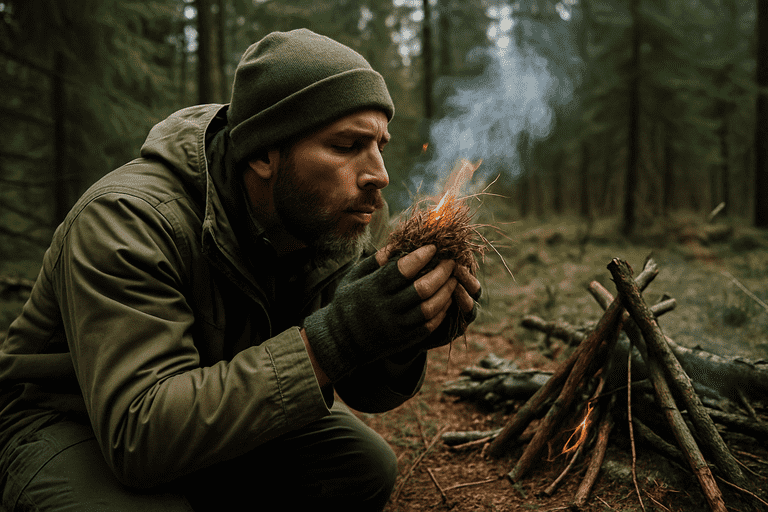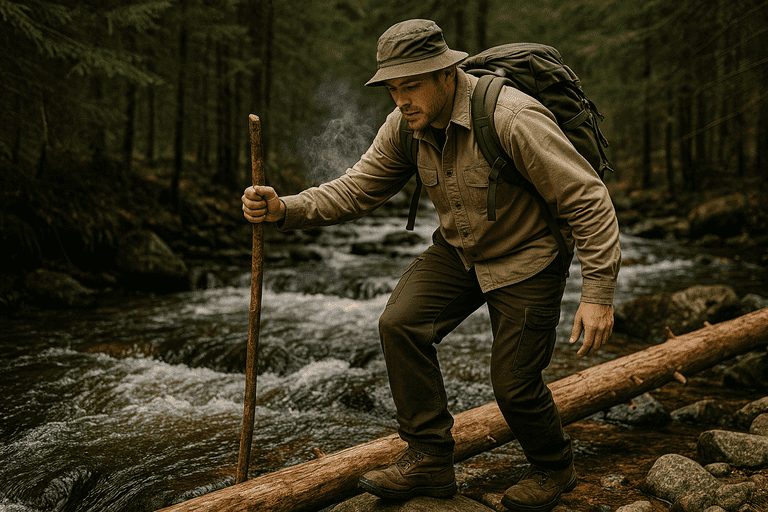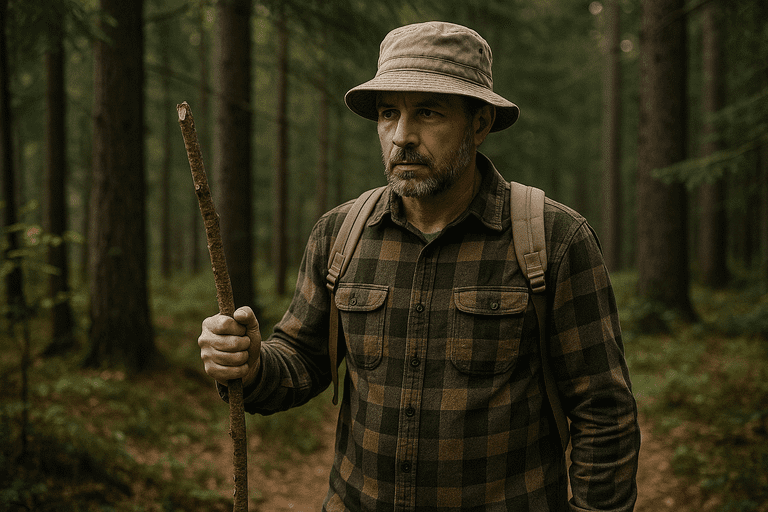In an age of modern convenience and constant connectivity, many people have lost touch with basic outdoor competencies. However, wilderness survival skills training is making a powerful comeback. For instance, understanding how to find clean water, build a shelter, or navigate without GPS can be life-saving in remote areas. Therefore, these skills are not just for adventurers or preppers—they’re valuable for anyone who ventures into the wild.
In addition, learning how to survive in nature cultivates self-reliance and critical thinking. Instead of depending on gear or technology, you begin to depend on knowledge and experience. That shift builds confidence and resilience that translates into everyday life as well.
What You’ll Actually Learn
When people think of wilderness survival skills training, they often imagine extreme scenarios. While it does prepare you for emergencies, the core lessons are practical and applicable. For instance, most courses begin with the rule of threes: humans can survive three minutes without air, three hours without shelter in harsh conditions, three days without water, and three weeks without food.
Wilderness Cabin Dells: Your Perfect Retreat
From there, you learn how to prioritize actions accordingly. Shelter-building, fire-starting, and water purification are covered in depth. In addition, you’ll discover edible plants, basic first aid, signaling for rescue, and even psychological techniques to stay calm under stress. Each skill builds on the next, creating a strong foundation for outdoor survival.

Who Should Take Wilderness Survival Skills Training?
The short answer is—everyone. While wilderness survival skills training may seem tailored to backcountry hikers or hunters, it actually benefits a much broader audience. For instance, campers, climbers, scouts, park rangers, and even casual nature lovers can all gain something valuable.
In addition, families often take courses together to create shared knowledge and preparedness. Kids love the hands-on activities, and parents gain peace of mind knowing everyone can handle unexpected situations. Therefore, whether you’re planning an extended trip or just love weekend hikes, this training empowers you to face the unexpected with confidence.
Real-Life Applications of Wilderness Survival Skills Training
Many people who undergo wilderness survival skills training find themselves using those lessons sooner than expected. For instance, something as simple as a twisted ankle miles from camp can become serious without proper knowledge. However, if you’ve been trained to splint injuries and signal for help, you’re far more prepared.
Choosing the Right Orienteering Equipment for Every Adventure
In addition, sudden weather shifts, equipment failure, or even getting lost can test your survival instincts. Training ensures you don’t panic—instead, you assess, adapt, and take informed action. Therefore, these skills aren’t just theoretical; they’re life tools you carry with you everywhere.
Choosing the Right Wilderness Survival Skills Training Program
With so many options available, it’s crucial to choose a course that fits your needs. Some programs offer weekend intensives, while others span several weeks. When researching wilderness survival skills training, consider the instructor’s background. For instance, former military personnel, wilderness EMTs, and bushcraft experts bring real-world experience.
In addition, look for a curriculum that includes both classroom theory and hands-on application. Field-based learning cements lessons far more effectively. Furthermore, check for reviews and certifications—reputable schools often partner with outdoor education associations or national park services.

Psychological Resilience Gained Through Wilderness Survival Skills Training
Surviving in nature requires more than physical strength—it demands mental toughness. Wilderness survival skills training places you in challenging scenarios that build psychological endurance. For instance, dealing with discomfort, uncertainty, or fear in the wild teaches you how to stay calm under pressure.
Wild Life Shelter: A Haven for Displaced Animals
Moreover, this type of training improves decision-making. You learn to evaluate risks, observe environmental cues, and respond methodically. These lessons extend far beyond the outdoors. In addition, overcoming challenges in nature strengthens your self-trust and problem-solving skills in daily life.
The Link Between Survival Training and Environmental Awareness
Through wilderness survival skills training, students develop a deeper respect for the natural world. For instance, when you learn to purify stream water or track animals, you begin to understand the delicate balance of ecosystems. In addition, courses often include segments on Leave No Trace ethics, sustainable foraging, and responsible fire-making.
Therefore, training not only prepares you to survive—but also to protect the environments you’re surviving in. Many people leave these courses with a desire to live more sustainably and advocate for conservation. Survival and stewardship, it turns out, go hand in hand.

A Lifelong Investment
The benefits of wilderness survival skills training don’t end when the course is over. The lessons stay with you for a lifetime and can even be passed on to others. For instance, many participants go on to teach their children, lead group trips, or join survival networks and communities.
In addition, these skills can save your life or the life of someone else. Knowing what to do in the first critical minutes of an emergency makes all the difference. Therefore, investing time in training is not just an adventure—it’s a gift of preparedness, peace of mind, and profound connection to nature.

